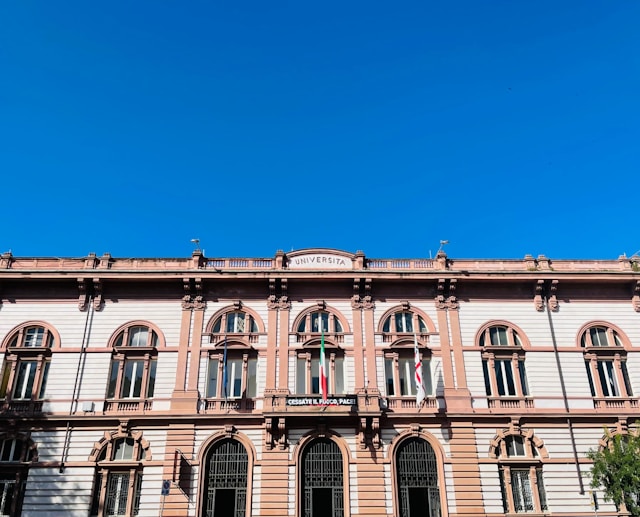

Indice
If you are planning to apply to university in Italy you are in the right place! This article gives you a step-by-step guide to start your study adventure in the Bel Paese.
Universities in Italy are ancient and prestigious institutions: the University of Bologna is the oldest one in Europe and lent its name to the "Bologna Process," which standardized higher education across Europe into three cycles:
In the 2024/2025 academic year, Italian universities continued to attract a significant number of international students. Approximately 32000 international students are currently studying in Italy, drawn by the country's high-quality education system and still affordable tuition fees (compared to other European countries). On average, tuition fees range from €900 to €4000 per year for undergraduate courses, depending on the program and the student's financial situation.
When looking for the best program for you, don’t google every university: go to Universitaly’s website. This is the Italian government portal that collects information about all the public and private universities in the Country.
The website is complete and easy to use. For example, you can filter the results according to the region or the language - Italian or English - you want to study in. You can also filter by course of study.
Here’s what you can do on Universitaly:
In this fist step, we suggest you make a list of programs you’re interested in and take note of their specific admission requirements and deadlines.
After selecting your desired course, create an account on the Universitaly website and pre-register with your chosen university. Even if you have a preferred institution, consider applying to multiple universities to increase your chances of acceptance.
Note that some universities may charge an application fee, while others do not.
Typically, the admissions office will require the following documents:
Important: If your chosen program requires an admission test, you must also provide proof of registration for the TOLC test and submit the results accordingly.
Application deadlines for international students typically fall between April and July.
Many universities require an Italian language certificate, especially for non-EU citizens residing outside Italy.
For English-taught programs you’ll usually need an IELTS, TOEFL, or Cambridge certificate at B2 level or higher.
For programs taught in Italian, you may need to pass a B2-level Italian language test or provide a certificate such as CILS or CELI. This could be an excellent opportunity to start studying Italian! Learning a little Italian will be of great help in your daily life and integration process.
If you wish to apply for a degree programme with a limited number of places (like medical studies, architecture or engineering), check the specific call for applications on the university's website to understand the entry test requirements.
The admission test could be:
TOLC tests can be taken online, while national tests are usually held in person on specific dates.
Once you receive the acceptance letter, you can complete the pre-enrollment on Universitaly for the university that accepted you.
Whereas EU citizens do not require a visa, non-EU citizens must apply for a student visa in order to be able to study in Italy. You can check if you need a student visa on the Visa for Italy portal.
If that’s the case, you will have to visit the Italian consulate in your own Country and present the following documents:
To be eligible for a student visa you will have to demonstrate proof of accommodation in Italy for at least the first 1 to 3 months.
At this moment, you are still outside the Country, and looking for a place to stay can be tricky when you can’t visit the place in person. That is why we advise you to search only on official websites such as:
Also, always check forums to see if the website or agency you want to rent from has good reviews: be aware of scams!
Upon arrival in Italy, finalize your enrollment (matriculation) at the university by presenting original versions of your documents, including:
The university will issue your student ID number (matricola) and university email address, officially marking the start of your studies in Italy!
Within 8 days of arriving in Italy, non-EU students must apply for a residence permit (Permesso di Soggiorno). Visit a post office with a "Sportello Amico" and request a Permesso di Soggiorno kit. More information can be found in this article.
Learn Italian: even if you're going to study in English, acquiring basic Italian language skills will make your integration into the community a lot easier. There are many options to study Italian in Italy.
Explore scholarships: investigate partial and fully funded scholarships offered by Italian universities and regional governments to support your studies.
Stay informed: keep up-to-date with application deadlines and visa procedures, as they may change annually.
Embarking on your educational journey in Italy is an exciting opportunity. With careful planning and preparation, you can make the most of your experience in this culturally rich Country. Welcome Association Italy is here to offer you all the support you need.
